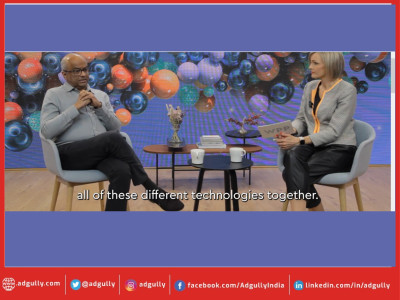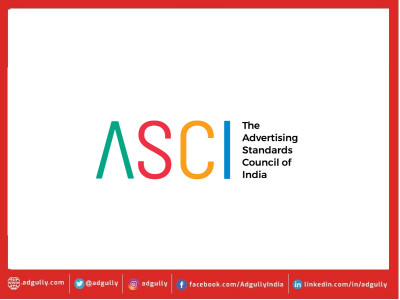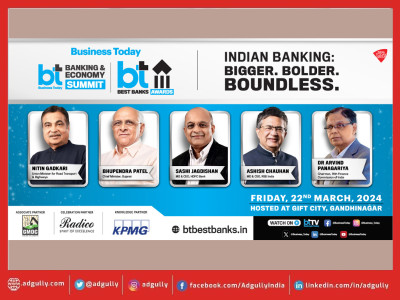Indians Most Proud of their National Identity:McCann Worldgroup Study
India’s attitudes towards global brands are revealed in a worldwide survey of public sentiment published by McCann Worldgroup today. Of the 30,000 people in 29 countries surveyed, people in India are the most proud of their national identity (94%), compared to an average of 85% globally. In addition, the research revealed that India has a strong culture of creativity and risk as it relates to its citizens’ hopes for the future; just over half (53%) of those interviewed said it’s more important to be creative and take risks than to be pragmatic and work towards personal security.
Reflecting the impact of technology as well as the rising strength of national movements, global marketing today is evolving into new patterns regarding surprising and complex global vs. local consumer attitudes and behaviors. As uncovered in the new McCann Worldgroup consumer research on global brands, 68 percent of people around the world believe with some concern that they have lost some of their country’s culture in recent years—and yet, as many as 85 percent believe that global brands have the potential to make the world better.
People in India are also highly positive about the idea of a more connected world, with 95% of those surveyed saying they feel positive about the idea of globalization (when defined as a more culturally sensitive ‘globality’), compared to 88% globally. Only people in Nigeria were slightly more positive. According to the survey, Indians see ‘globality’ as creating more jobs internationally, for them personally and for future generations. Interestingly, people in India also rank at the top worldwide when it comes to some areas of family communications: they speak to their fathers an average of 32 times a month, the highest globally, and significantly ahead of Italians, who come in second at 20 times a month.
These findings were among many in “The Truth About Global Brands,” a new study conducted by McCann Truth Central, McCann Worldgroup’s global intelligence unit. In looking in-depth at the changing dynamics of global brand marketing today, the study concluded that building global brands requires a more nuanced interactive approach that the agency is calling “globality” to distinguish it from methods traditionally associated with globalization. The term ‘globality’ can be described as a more free-flowing interaction between global and local dynamics that reflects resurgent nationalism and a reclamation of local culture, underpinned by unprecedented access to shared technology and experiences.
“While people around the world are generally positive about global brands, there is a sticking point in that such brands can still be associated with a definition of ‘globalization’ that describes a flattening of cultures,” said Prasoon Joshi, Chairman, McCann Worldgroup Asia Pacific and CEO, McCann Worldgroup, India. “The immense pride we Indians take in our national identity, combined with our strong culture of creativity and risk-taking, is very important indeed. These are the critical attributes and behaviors that will help us to progress and succeed in the rapidly changing global marketplace.”
“If more than four-fifths of the world’s population believes that global brands can make the world a better place – even more in India -- then marketers have an important opportunity to earn their way into people's lives in much deeper, more meaningful ways,” said Suzanne Powers, McCann’s Global Chief Strategy Officer. “But the specific ways they approach earning this privilege are critical in a world of massive transparency where everything local is global in a matter of clicks. As the Truth About Global Brands study revealed, marketers today have to apply a globality approach that recognizes the need to address local cultures with more reverence and nuance.”
The study’s findings uncovered that global brands continue to have major opportunities despite the resurgence of national pride, but their success depends on how they approach local markets.
· In terms of “identification with local brands” people in India are somewhat concerned about the effect of global brands on their own local brands. The majority of Indians (82%) think that global brands are pushing out local brands, compared to 76% globally. They largely mirror the global preference for local vs. foreign brands, except in the automobile and health/ beauty categories, where they are slightly more inclined to buy local than the global average.
· Health and beauty: In India, 46% prefer global brands (51% global)
· Automobile: 60% prefer global brands in India (71% global)
· At the same time, global brands are seen to have tremendous potential. The findings of the study show that 90% of Indian people agree that global brands have the power to make the world better, the second highest percentage after China. The global average is 85%.
· India’s greatest hope for the next generation in a more global world is that they will have the opportunity to work for international companies. Slightly over half of the people in India (51%) cite this as the #1 hope for their children, compared to 41 percent globally.
Research Methodology
“The Truth About Global Brands,” a new consumer research study conducted by McCann Truth Central, McCann Worldgroup’s global intelligence unit, is the largest study the group has undertaken to date. In looking in-depth at the changing dynamics of global brand marketing today, the study concluded that building global brands today requires a more nuanced interactive approach that the agency is calling “globality” to distinguish it from methods traditionally associated with globalization. The research entailed interviews with 30,000 people in 29 countries, supplemented with qualitative research that included focus groups and in-home ethnographies in addition to in-depth interviews with consumers as well as with marketing, cultural and entertainment experts.
McCann Worldgroup launched the “The Truth about Global Brands” consumer research study on January 22nd in New York City. Since then it has been presented to clients and teams in Hong Kong, Tokyo, Barcelona, Dubai and London. Today it launches in New Delhi, India. Over the next few months it will be presented in Madrid, Manila, Singapore, Shanghai, Sao Paulo and Santiago, Chile.

















Share
Facebook
YouTube
Tweet
Twitter
LinkedIn